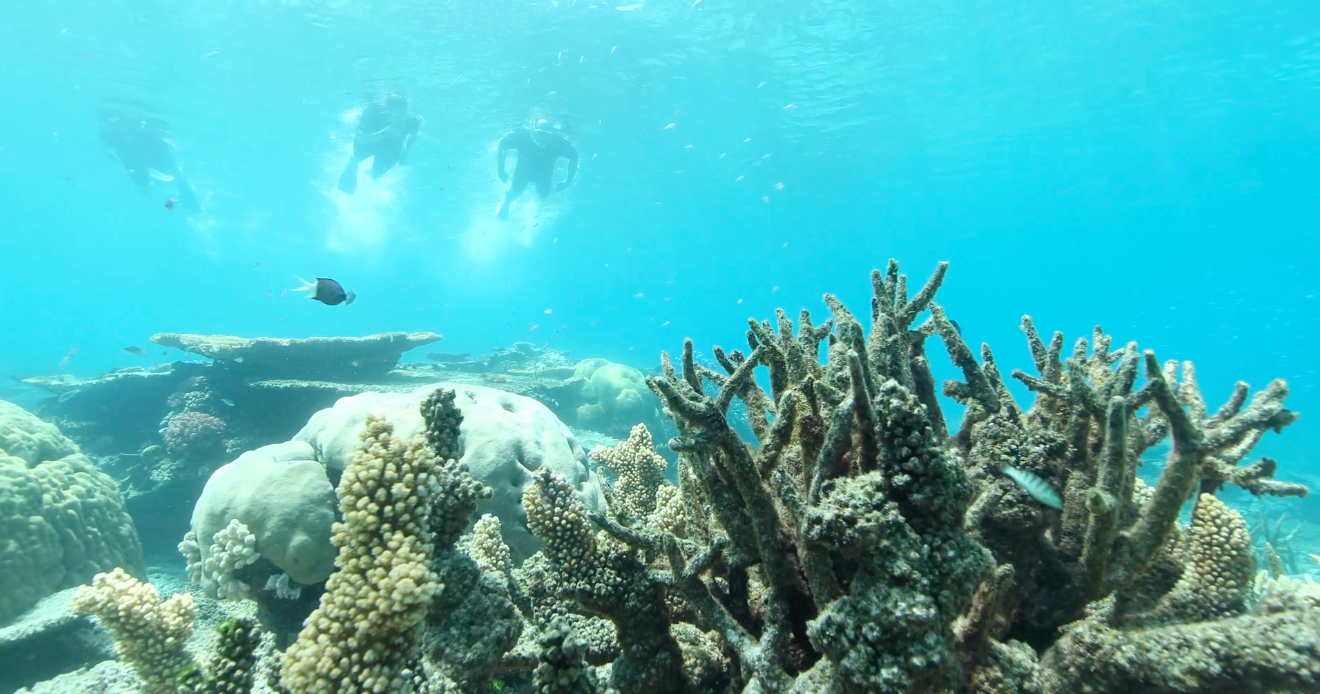The future of the world’s corals looks bleak. The longest global coral bleaching event on record from 2014 mid-2017 has recently ended, while large parts of Australia’s Great Barrier Reef have experienced back-to-back bleaching over the past two years. Human activities from the burning of fossil fuels – coal, oil and gas – are driving ocean temperatures to unprecedented levels, and ocean acidification has already increased by 30%.
Coral reefs are incredibly important for local economies and tourism worldwide. For example, the Great Barrier Reef was recently estimated to be worth $56 billion, stressing its immense importance for Australia’s economy, as well as providing rich cultural, social and environmental value.
So, is there anything that can be done to help coral survival? While countries around the world are committing to reducing emissions as part of the Paris Climate Agreement, international action is not moving fast enough to stay below 2°C warming, yet alone the 1.5°C target. Worryingly, a recent study shows that 2°C warming will lead to bleaching of 75% of the world’s coral reefs every year before 2070.

Increasing coral resistance
While climate change continues to threaten coral reefs, scientists from Australia and Hawaii are collaborating to research whether corals can adapt to changing marine conditions.
The Gates Coral Lab in Kaneohe, Hawaii, studies the impacts of environmental change on coral reefs. Their research provides crucial insights into the current environmental conditions corals are facing and their capability to adapt.
A major goal of the Gates Lab is to increase the resistance of corals to changing environmental conditions. Not all corals bleach at the same time and at the same pace. This means that between patches of bleached coral, alive and growing coral can sometimes be found. Researchers cross-breed some of these better adapted corals to further enhance their resistance.
Hope could also come from an attempt by these researchers to “train” corals to become more resistant. This is achieved by exposing pieces of coral to successive periods of warmer and more acidic water using experimental tanks to simulate future ocean conditions. Exposing coral to such stresses may accelerate the organism’s adaptation process. The researchers have already found that the offspring of coral exposed to stress can cope better with harsh conditions than offspring that were not exposed. The inheritance of resistance-enhancing traits is fundamental for coral survival.
Can human intervention help?
While there is potential for a small number of reefs to become more resistant to climate change in the short term using this research, ocean temperature rise and ocean acidification will continue to increase as climate change continues. Unfortunately the major dilemma with this research is the capacity to scale up the project to a size of any significance. Additionally, adaptation of corals naturally takes hundreds and thousands of years. As waters continue to increase in temperature, there is no guarantee they will survive, regardless of any resistance ‘training’ that has occurred. Curbing sea temperatures and ocean acidification is crucial for the survival of coral. Reducing our greenhouse gas emissions is the most important action we can take if we are to have any chance to protect our coral reefs.